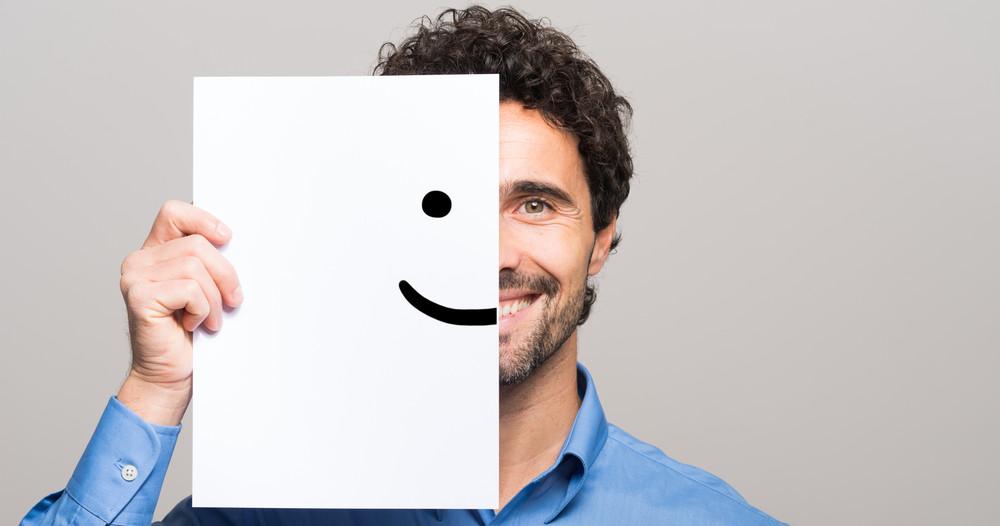Eudaemonism: all about this philosophy of happiness
What is eudaemonism?
Eudaemonism: behind this complicated word actually hides a philosophical doctrine born during Antiquity and acclaimed by philosophers such as Plato, Aristotle, Epicurus and Spinoza. "The postulate of eudaemonism is that the purpose of life is happiness: everyone's goal is to achieve happiness" clarifies psychologist Betty Jereczek.
Moreover, this (central) notion of happiness is found in the very etymology of the word "eudaemonism", which is constructed from the ancient Greek "eudaimonismos", "the wish for happiness". In ancient Greek, "eudaimonía" means "bliss".
"Eudaemonism has gone from philosophy to psychology in part thanks to the boom in personal development in recent years: in bookstores, there are now a lot of books on the quest for happiness, how to achieve happiness, methods to find happiness, etc. "adds the psychologist.
Eudaemonism: is the quest for happiness desirable?
"When a patient tells me that his goal in life is to be happy, I always ask the same question: "for you, what does that mean? “, explains the psychologist Betty Jereczek. Indeed, we all have our own definition of happiness: there is not “a” universal happiness to pursue.
Moreover, “eudaemonist philosophy says, in essence, that at the end of one's life one must have reached happiness: it's a monumental pressure!” adds the psychologist. " From this colossal pressure arises several questions that can generate discomfort: how do I manage to achieve happiness? Where do I start? If I have everything to be happy but I am not, have I missed something? It seems to me that the pursuit of happiness at all costs does not lead to a fulfilling life..."
Moreover, we know: "the human condition is not only joy: there are also moments of suffering, which are perfectly normal", remarks Betty Jereczek, who emphasizes that "suffering requires also accept since it is part of our existence: to reject suffering is to allow it to grow in the shadows and this can ultimately lead to psychological discomfort or even psychiatric disorders - depression or burnout, for example.”

The psychologist therefore recommends "allowing yourself to live all the moments of life, whether happy or unhappy: there is no guilt to have when you feel sad, angry or in pain, it is part of existence. You can't be constantly in a state of bliss."
Just a reminder/info on how to comfort a grieving person. Because from my experience, most people have no idea! Whi… https://t.co/9BL2utMUPR
— Amber McKenna, MD 🎀 Thu Mar 12 19:40:54 +0000 2020
Without forgetting that it is difficult to feel happy when you have no "point of comparison": as in Chinese philosophy, light needs shadow to exist - this is the principle of yin and yang...
Eudaemonism: the quest for pleasure and joy rather than the quest for happiness
It has been said: the quest for happiness at all costs is not necessarily desirable. To lead a fulfilled and serene life, the psychologist therefore advises "to accept your uncomfortable emotions and life events as they are, including when they are painful or difficult. Look at yourself in a mirror with honesty and sweetness: "yes, I'm going through a difficult time, I have the right to be sad, I have the right to be angry, it's a time to pass, but I accept to live it". , do not reject suffering: " do not close the door to your emotions, welcome them! "
"Welcoming suffering and negative emotions is also about making peace with your little inner critical voice" adds Betty Jereczek. This little voice, we know it well: it's the one that tells us "you suck!" when we get angry with a friend, "you're fat!" when we finish the box of chocolates because we're sad / angry, "you are incapable!" when you fail an exam...
“This little voice hurts us but, in reality, it is there for our good; it is simply clumsy. Do not hesitate to speak to it (this is metacognition) to invite it to be more compassionate. you that you are human, therefore fallible: bring you benevolence." For this, the psychologist advises us to forge a little encouraging sentence: "for example, it can be "it's not right now, but it will get better very soon ".
Rather than running after happiness, psychologist Betty Jereczek suggests that we devote time to activities that make us happy: "It can be reading, video games, music, painting, sports, walks... .it doesn't matter, as long as it brings you joy and pleasure, however fleeting.”
In addition, the psychologist advises to be in a process of sharing with those close to you and those around you: "it's proven: the activities that bring us joy and the moments of sharing (when you go for a coffee with a friend, when you bake a cake for your children, when you spend time on the phone with a cousin...) activate the neurological circuits of pleasure, which is the best way to protect against anxiety-depressive disorders."
Thanks to Betty Jereczek, psychologist member of the Psychologue.net expert committee.
Read also :
⋙ Kitchen therapy: the new recipe for happiness?
⋙ Chinese New Year lucky recipes
⋙ Personal development: 6 bad habits to remove to find happiness
Eudaemonism: all about this philosophy of happiness
GO
How Danielle Collins became a champion again despite having endometriosis
GO
Seven cases of COVID-19 are added to the regional balance sheet of Gaspésie
GO
Effects of palm oil on health: what are the dangers?
GO